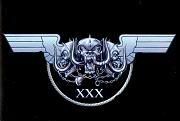Difference between revisions of "Lorkhan"
(→Government) |
|||
| Line 4: | Line 4: | ||
region=[[Norgeland]] | | region=[[Norgeland]] | | ||
motto=For peace, for unity, for the people, for Lorkhan!| | motto=For peace, for unity, for the people, for Lorkhan!| | ||
| − | language=[[Norgetale]],[[Post- Teutonic]] | | + | language=[[Lorian]],[[Norgetale]],[[English]] , [[Post- Teutonic]], [[Norwegian]], [[Swedish]], [[Dutch]] | |
| − | capital=[[Järten Prime | + | capital=[[Järten Prime, Acropolis City]] | |
population= 1.5 billion (including colonial population) as of last census | | population= 1.5 billion (including colonial population) as of last census | | ||
currency=[[Utto]] | | currency=[[Utto]] | | ||
Revision as of 23:31, 5 August 2007

| |
| Flag of Lorkhan | |
| Motto: For peace, for unity, for the people, for Lorkhan! | |
| National Anthem: Blood of Heroes | |
| Region | Norgeland |
|---|---|
| Capital | Järten Prime, Acropolis City |
| Official Language(s) | Lorian,Norgetale,English , Post- Teutonic, Norwegian, Swedish, Dutch |
| Leader | Grand Nasier Tiber Valias |
| Population | 1.5 billion (including colonial population) as of last census |
| Currency | Utto |
| NS Sunset XML | |
Lorkhan, officially the People's Nationalist Republic of Lorkhan, is a secular republic led by the governing Grand Nasier: Tiber Valias, and the NSSC political party which is the dominating political group of the state and the encompassing body of the senate. The nation-state is located in the temperate-sub arctic area of central Norgeland, the northern most sub-continental region of the continent of Corellus. It's capital city is Järten Prime.
The country is divided into 7 provinces, 48 counties, and one district. Each with their own governing council presiding. The governing councils answer directly to the NSSC.
The nation is extremely rich in culture and deeply rooted in old world Scandinavia and Germanic civilization. The first settlers of the nation were from Norway, and it's present day citizens are extremely proud of their origins and disdainful of outsiders. The citizens enjoy a high standard of living and the country is generally perceived by others within the region as modern and progressive, with an organizational culture that is far more collectivist compared to its Anglo-Saxon counterparts.
The country remains isolated from foreign influence and has only recently re-instituted contact with select nations outside of Norgeland.
History
Evidence shows that humans have been settling the southern regions of Lorkhan along the Great Lake since 10,000 B.C. These people were mostly hunter-gatherers and often conflicted with the local Bjørneske hordes that dominated the area up until early 800 A.D. By the early middle ages many of these tribes had moved south and west to present day Gravedom and Falgoust, or had been wiped out through war and disease.
The nation of Lorkhan and it's history dates back to the early-dark ages, and the Norwegian Järtenian tribes that originally settled the area. By the 1400s the nation had become a powerful kingdom and presided over what is now present day Gravedom, Doviov, and Lorkhan.
In the middle ages the country was absorbed by the expanding Empire of Norgeland. The fall of the Empire's control of the country was triggered by the radicalization of several agitated nobles who dubbed themselves The New Sons of Lorkhan, and in the fall of 1880 a widespread insurgency began over night. The Empire's own internal conflicts paired with the rising rebellion saw it crumble, and by the spring season of 1881 Lorkhan had won it's independence which it has held ever since.
The leaders of the New Sons of Lorkhan positioned themselves into power, beginning decades of corrupt tyrannical rule that would be defended and encouraged by rogue nations across the globe who sought interest in Lorkhan's resources. The dictatorship went unchallenged until the mid 80s', when again the nation was thrown into civil conflict by the newly founded NSSC. The NSSC was considered a mere threat and many of it's members were jailed and killed until the rise of Tiber Valias and his allies in the early 1990s. The dictatorship crumbled and the NSSC rose to power in 1993.
Since then they have become a major political and economical power, exceeding Falgoust's industry by 48% and trailing only marginally behind economically.
